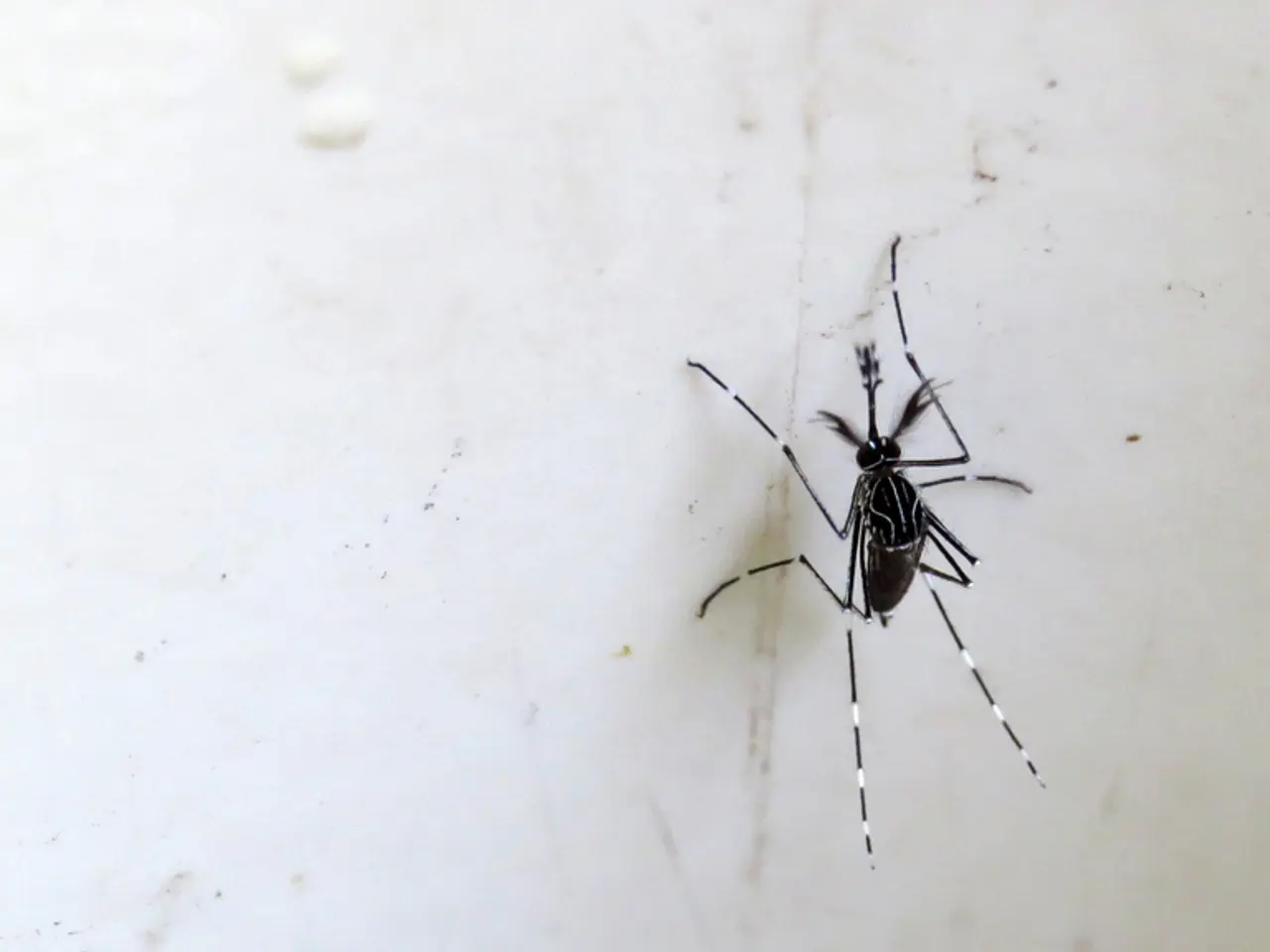Strategies for Effective Defense Against Mosquito Bites
In the battle against mosquitoes, knowledge is your best weapon. Here's a guide to help you effectively use mosquito repellents, clothing, and bed nets to reduce bites and lower the risk of mosquito-borne infections like malaria, dengue, and Zika.
On Skin
Apply insect repellents containing 20-30% DEET (or alternatives like picaridin) to all exposed skin. Follow product label instructions carefully and reapply as directed, especially after sweating or swimming. Remember, DEET can cause eye irritation and allergic skin reactions, so avoid applying it near your eyes or on cuts and irritated skin.
On Clothing
Spray repellents designed for fabrics, such as permethrin, on clothing, shoes, and hats to create a protective barrier. Opt for tightly woven, light-colored, loose-fitting clothing to reduce bites. Reapply fabric treatments as recommended after washing. Thin, tightly fitted fabric is not an effective barrier against mosquitoes.
On Bed Nets
Use bed nets treated with long-lasting insecticide to protect against mosquitoes at night. Ensure the net is properly tucked in under the mattress or sleeping area to prevent mosquito entry. Fine-mesh nets over the bed or stroller can also provide protection, especially when traveling to disease-prone regions.
Additional tips:
- Avoid peak mosquito activity times—dusk and dawn—when mosquitoes bite most aggressively by wearing proper clothing and applying repellents during those periods.
- Showering before bed can help deter mosquitoes.
- Coconut oil contains fatty acids that can repel mosquitoes as effectively as DEET.
- Mosquitoes are less likely to be attracted to areas with fine-mesh nets or insect screens.
- Insect screens on windows can keep mosquitoes out, ensuring a peaceful night's sleep.
Safety Precautions
Always follow safety precautions on repellent labels, and avoid applying repellents under clothing or on cuts and irritated skin. Icaridin is an alternative to DEET for those sensitive to it.
The German consumer organisation Stiftung Warentest recommends using mosquito repellent strategically, such as before a hike. Mosquito repellent sprays rely on scents that repel bloodsuckers, but mosquitoes are attracted to certain scents in sweat.
By adopting this integrated approach, you can significantly reduce mosquito bites and lower the risk of mosquito-borne infections. Happy and bite-free adventures!
- Engage in skin care routines that incorporate mosquito repellents: Apply repellents containing DEET or picaridin to your skin, as directed, to prevent mosquito bites and reduce the risk of infections like malaria, dengue, and Zika.
- Maintain a health-and-wellness lifestyle by adopting fitness-and-exercise practices: Wear loose, light-colored clothing and use bed nets to avoid mosquito bites during exercise or outdoor activities.
- Enhance your home-and-garden environment: Keep windows covered with insect screens to prevent mosquitoes from entering your home while ensuring a peaceful night's sleep.
- Adopt a lifestyle that prioritizes outdoor-living and nutrition: Be aware of the scents mosquitoes are attracted to in sweat and use mosquito repellent strategically, such as before a hike or outdoor activity, and remove standing water around your home to discourage mosquito breeding.




